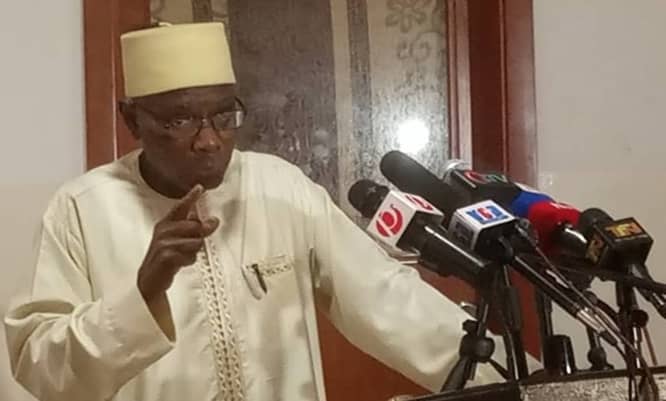
While most people no doubt welcome the recent press release from the Independent Electoral Commission (IEC) requiring all registered political parties to hold their biennial congresses, but there are certainly much more urgent things that the people expect the IEC to deal with before the next electoral cycle.
It is quite a well-known fact that these party congresses are mere rituals which serve very little purpose apart from giving chance to the leadership of the parties to renew their positions and those of their cronies.
In fact, many of these parties now exist in name only but in reality, they hardly have any support base. It has even been observed that in many instances, it is the same group of people that usually attend the congresses of those different small parties.
The objective is therefore to simply hold the congresses just to satisfy the IEC requirements rather than for any other purpose.
It had been almost a year since the last presidential elections and there are so many things that the IEC needs to do in order to prepare for the next electoral cycle.
Those include preparations to register diaspora Gambians, sanitize the constituency boundaries in order to do away with the present system where there is a big demographical disparity between the constituencies, as well as carry out the long anticipated electoral reforms, including doing away with the moribund marble voting system and replacing it with the paper ballot.
It is indeed hard to understand why our constituencies are still demographically so disproportionate, with some of them more than 20 times larger than the others, and yet, they are all supposed to have equal representation in the legislature.
For instance, a constituency like Janjanbureh has less than 2000 registered voters and all the five constituencies in Foni added together have slightly over 40,000 registered voters, while a constituency like Serekunda West, for instance, has almost 50, 000 registered voters, yet still, they all send one representative to the National Assembly. That certainly is a mockery of democracy and equal representation.
Despite all such untenable disparities however, the IEC has still not been seen to make any visible efforts to correct the anomaly, in spite of the Commission having all the time in the world to do something about that.
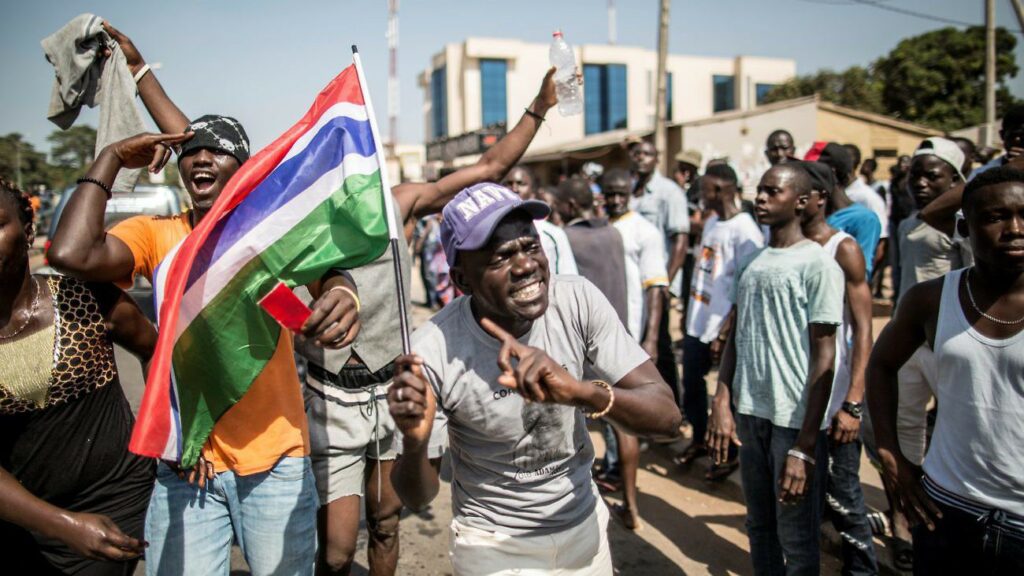
It is very likely that they would do nothing again until a few months before the next elections and give the usual excuse that time is not on their side to carry out such necessary reforms.
With regards to the need to modernize our electoral system and bring it in line with best practices elsewhere, the IEC certainly should take the bull by the horns before the next electoral cycle.
While some people are advocating for the retention of the marbles, describing that system as being the most suitable for Gambians, but the reality is certainly not the case.
The very fact that The Gambia is still the only country in the whole wide world of more than 200 countries still using the outdated marble voting system in our elections seems to show our unwillingness to embrace modernity.
It certainly does not make any sense to assume that we are right and everyone else is wrong. Even though we may be small and poor, but we are certainly not the least educated nation, and therefore, if voters in the other countries can use paper ballots in their elections, why can’t we do the same?
Those Gambians still defending the continued use of the marbles based on the fact that a majority of our population cannot read and write, are simply conservative and afraid of change.
It is also not quite complimentary to insist that Gambians have not attained the political sophistication where we can use the paper ballot when other countries with lower literacy rates are successfully using that system.
We certainly need to do whatever it takes to modernise our electoral system and graduate from the ‘stone age’ (using stones) to the modern paper ballot system.
As things were in the past, with only a few political parties and fewer candidates contesting elections, the marbles could have continued to serve us well, but with a proliferation of political parties and candidates, the logistics of conducting elections under such an archaic system would be too chaotic to handle.
One can imagine, for instance, a constituency with 20 candidates, thus having 20 ballot drums being crammed into one small polling booth and expect a less sophisticated old man or woman with poor eyesight alone in that enclosure being required to pick out the drum of the candidate of his/her choice.
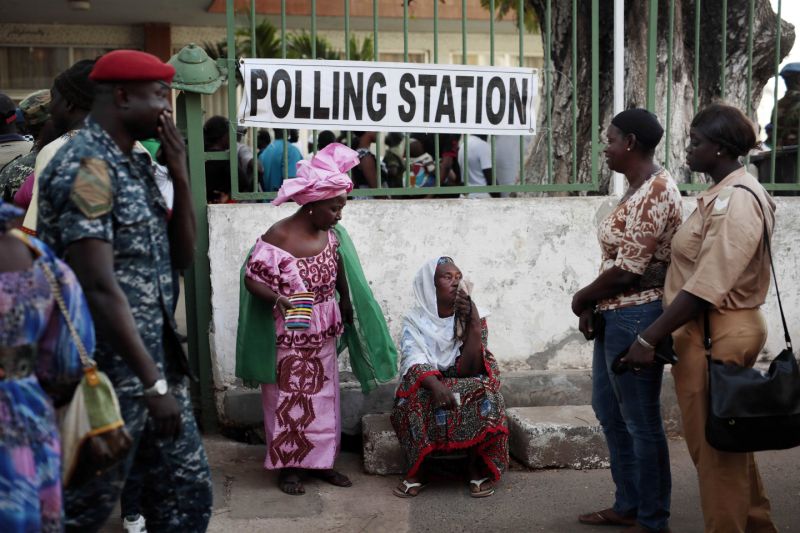
While in the case of the paper ballot, each polling booth would have only one ballot box for all the 20 candidates and it would be placed in the open where everyone would see it. That is certainly much more transparent and simpler for everyone.
We had all assumed that the IEC had learnt a lot of lessons from the last electoral cycle when a lot of things did not go as expected, but with the “tukutuku yereng” from their end, it is not convincing that anything positive would happen before the next cycle.
We can understand that the IEC may have been waiting for the anticipated new constitution before embarking on some of those reforms, but there is no indication as to when or if ever we would get a new constitution under the Barrow administration apparently because the 1997 Constitution, which was tailor-made to serve the Yahya Jammeh administration, seems to be doing exactly that for President Barrow and his team.
Therefore, we can all see the lack of commitment from the government to change the status quo, and we would expect the IEC to go ahead and implement the necessary electoral reforms until such time that a new constitution is available.
It is also hard to understand how a modern electoral body like the IEC cannot even maintain an up-to-date website. For instance, even the segregated results of the last presidential elections are still not available on their website and a lot of other useful information including the various pieces of legislation and documents dealing with elections cannot be found on it.
It is therefore hard to see how the IEC, which is unable to maintain such indispensable modern tools like a website, can be relied on to run an efficient and modern electoral process.
For instance, in this digital age, one would have even expected that instead of the IEC demanding candidates to come with physical cash to pay for their deposits and other charges, everything should have been done electronically and through the banking system.
Another important area that the IEC needs to address is the need to have an efficient legal department, which would advise it on legal matters rather than just doing things according to its own interpretations of the law.
A good case in point for such a shortcoming was the disqualification of some presidential candidates during the last presidential elections, which the courts found to have not been properly done according to law.
There is no doubt that if the Commission had a legal department manned by efficient lawyers, such an embarrassing situation could have been avoided.
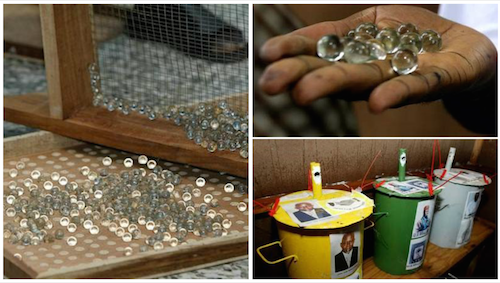
We all saw some of the observations and recommendations made by some of the election observation missions which included recommendations for essential changes in the electoral legal framework in order to bring it in line with international standards.
The European Union Observation Mission, for instance, observed that; “The manner in which the nomination process was conducted, which included avoidable missteps, including issues around the application of the law and poor communication, highlighted weaknesses in the IEC’s internal structure and capacity, as well as shortcomings in the regulatory time frame for nominations vis-a-vis the commencement of the campaign.”
It also went on to recommend the strengthening of “the institutional independence of the IEC by establishing an inclusive mechanism for the selection and appointment of the IEC chairperson and commissioners and by ensuring the security of tenure of the commissioners.”
It certainly does not inspire confidence in the electoral system if the President, who is one of the players, should also assume the powers to appoint the chairperson and commissioners of the IEC.
It is just like the coach of one of the competing teams in a football match being given the power to appoint the referees of the match.
Gambians are certainly expecting much more from the IEC, and everyone is therefore wishing and hoping that it would wake up from its present slumber and henceforth deliver to the people’s expectations.
By D.A Jawo
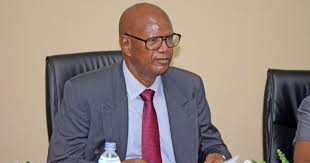










Recent Comments